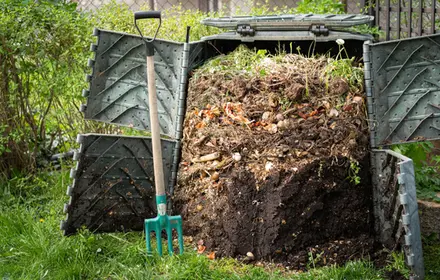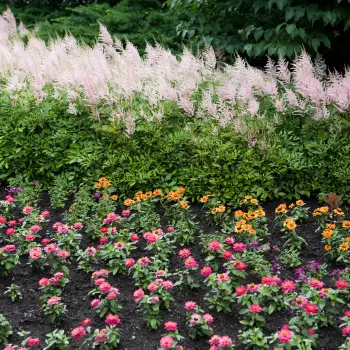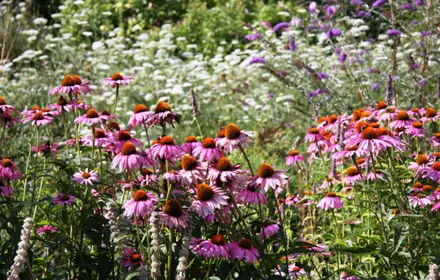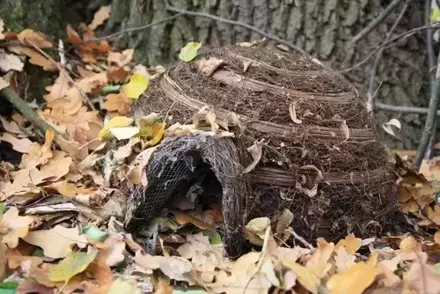Compost your trimmings

Every gardener knows the joy of a bountiful harvest — baskets of tomatoes, piles of leafy greens, armloads of zucchini. But with all that abundance comes another garden reality: trimmings, scraps, and the occasional overripe veggie. Instead of tossing them in the trash or green bin, why not turn those extras into garden gold?
Composting is one of the easiest and most sustainable ways to reduce waste and improve your garden’s health. Whether you have a small backyard plot or a full-fledged vegetable patch, starting a compost pile or bin is a simple act with long-lasting rewards. Let’s dig into the benefits, how-tos, and why your soil will thank you.
Why Composting Makes Sense for Gardeners
Composting is nature’s way of recycling. It transforms your organic kitchen and garden waste into nutrient-rich humus — a dark, crumbly, earthy material that boosts soil structure and feeds your plants. Here’s why composting should be part of every Canadian gardener’s routine:
- Enriches your soil naturally: Compost adds essential nutrients like nitrogen, phosphorus, and potassium, along with beneficial microbes that support healthy plant growth.
- Reduces garden and kitchen waste: Leftover lettuce, tomato tops, carrot peels — it all adds up. Composting helps keep these materials out of landfills and puts them to good use.
- Improves soil structure: Compost lightens heavy clay soils and improves water retention in sandy ones. It creates a more balanced environment where roots can thrive.
- Cuts down on the need for synthetic fertilisers: Healthy soil means you can feed your garden without relying on chemical additives.

What You Can (and Can’t) Compost
Here’s a quick guide to what you can safely add to your compost pile from your garden and kitchen:
Yes, compost these:
- Vegetable and fruit scraps (no oil or seasoning)
- Coffee grounds and filters
- Tea bags (check for plastic-free material)
- Crushed eggshells
- Garden trimmings and dead plants (disease-free)
- Grass clippings and leaves
- Plant-based paper (shredded newspaper, paper towels)
Avoid composting:
- Meat, dairy, and oily foods (they attract pests)
- Pet waste
- Diseased plants or invasive weeds
- Glossy paper or synthetic materials
A good rule of thumb is to aim for a balance of “greens” (nitrogen-rich materials) like produce scraps and grass clippings, and “browns” (carbon-rich materials) like dry leaves, straw, or shredded paper. This balance helps your compost break down efficiently and without odour.

Starting a Compost Pile or Bin
Whether you're composting on a balcony or in a backyard, there’s a system that fits your space:
- Open pile: Great for rural or larger gardens. Simply layer your green and brown materials in a corner of your yard.
- Compost bin: Ideal for small yards or urban settings. You can buy one from your local garden centre or build one yourself using wood or recycled materials.
- Tumbling bin: A user-friendly option that makes turning compost easy and speeds up decomposition.
- Indoor composters or worm bins (vermicomposting): Perfect for gardeners with limited outdoor space.
Whichever system you choose, make sure your compost gets enough air (turn it regularly), stays moist (but not soggy), and contains a healthy mix of materials.

Ask Your Local Garden Centre
Not sure how to start? Your local Canadian garden centre is a fantastic resource. Staff can recommend compost bins, troubleshoot any odour or pest issues, and help you find the right solution for your space and gardening style. Some even offer workshops or sell compost starters to give your pile a boost.
Buying local also helps support sustainable gardening practices in your community — and it's a great excuse to pick up more plants while you're there!
Give Back to Your Garden
The next time you’re trimming extra kale leaves or wondering what to do with that cracked cucumber, don’t toss it — compost it! By recycling your garden and kitchen scraps into rich, living soil, you’re closing the loop in your garden’s ecosystem.
Healthy soil means healthier plants, better yields, and a more resilient garden overall. And the best part? Compost is free, easy to make, and good for the planet.
So go ahead: start that compost pile, grab a bin, and let your trimmings do the dirty work.



